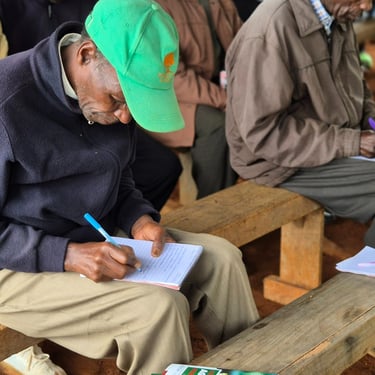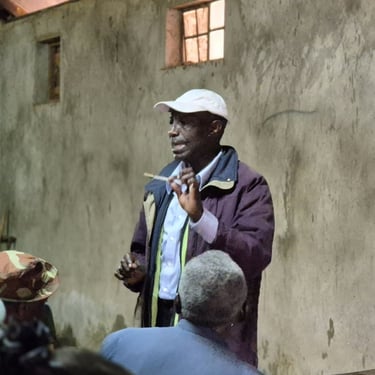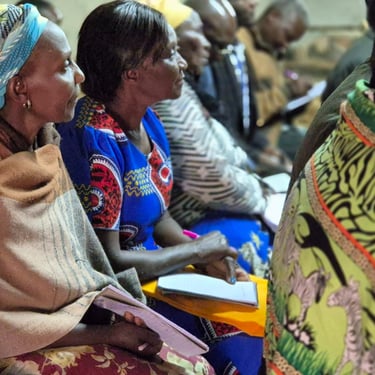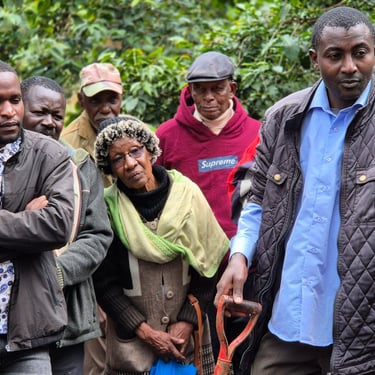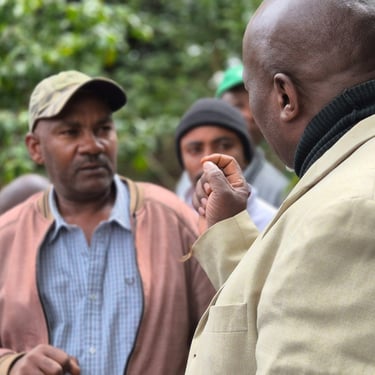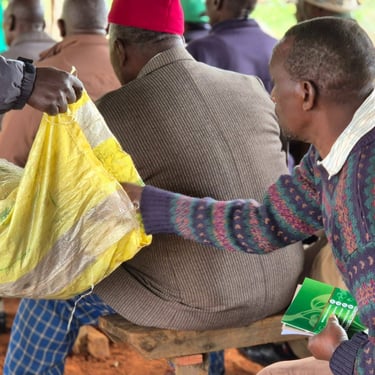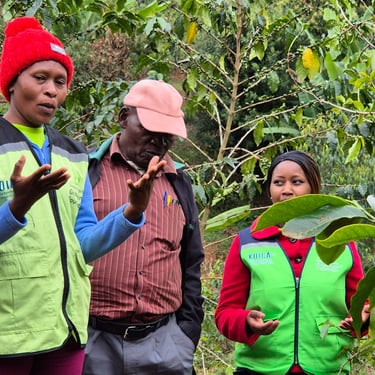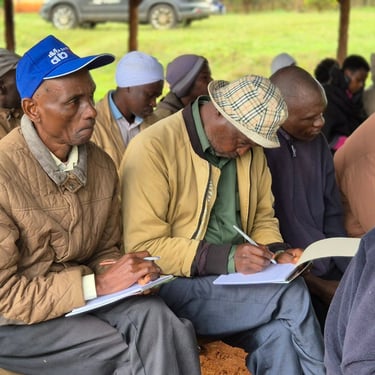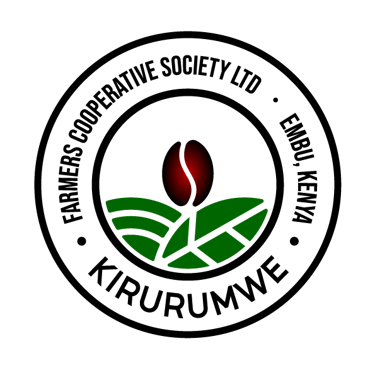Kirurumwe Farmers Cooperative Society (KFCS) Leads the Way in Farmer-to-Farmer Training Across Embu
NETWORKING WITH OTHER SOCIETIESBLOG POST
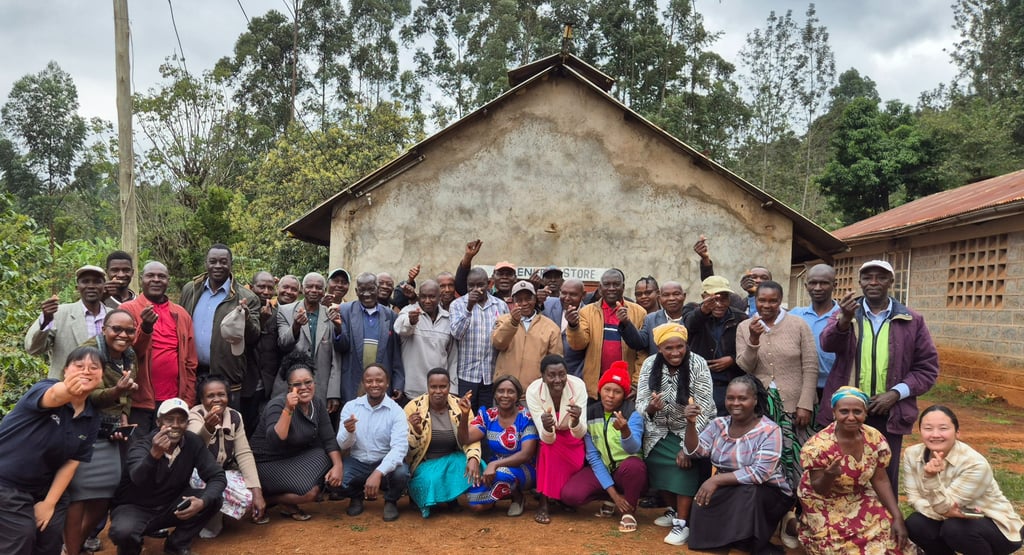

Introduction to Cooperative Training
The agricultural sector is essential to Kenya's economy, with cooperative societies playing a pivotal role in the development and empowerment of farmers. A significant training program was recently conducted to enhance the skills of farmers in Embu, organized by Kenya Good Neighbors in collaboration with Anams Research and Consulting Limited. This training aimed to foster knowledge-sharing among farmers and improve agricultural practices through the Trainers of Trainers (TOT) model, which is a key initiative of the Embu Coffee Farmers Income Enhancement Project, implemented by the Good Neighbors Global Impact Foundation (GNGIF) and the Korea International Cooperation Agency (KOICA).
In this collaborative effort, a training initiative was conducted focusing on the TOT approach for small cooperative societies. Six selected Trainers of Trainers (TOTs) from the Kirurumwe Farmers Cooperative Society (KFCS) shared their expertise with fellow farmers from neighboring cooperative societies in Embu. This four-day training, held from August 19 to August 22, 2024, emphasized Good Agricultural Practices (GAPs) in coffee cultivation and demonstrated the capacity of KFCS farmers to empower others through effective knowledge-sharing.
Purpose of the Training
The main goal of this 4-day training, held from August 19 to 22, 2024, was to empower farmers by utilizing the TOT model, where well-trained farmers teach and mentor their peers. By having Kirurumwe Farmers Cooperative Society (KFCS) farmers share their expertise, the training aimed to spread Good Agricultural Practices (GAPs) in Coffee to other cooperatives, ensuring sustainable coffee farming techniques. It also addressed the unique challenges faced by different cooperative societies due to variations in location, climate, and farming conditions.
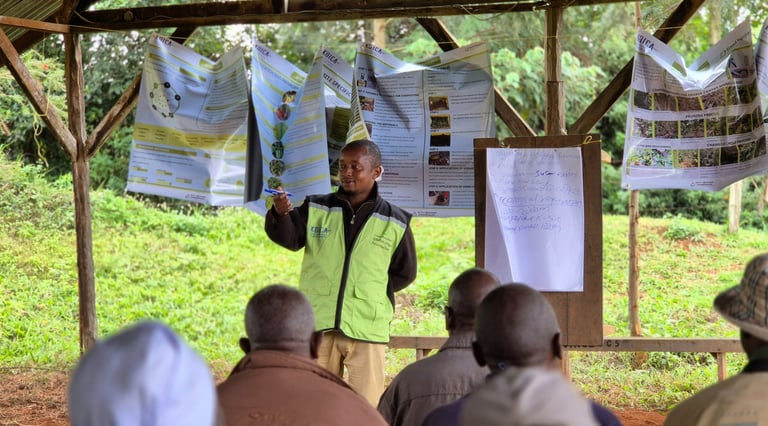

Participating Societies and Training Sites
The training sessions took place across three strategic locations in Embu, with a total of 120 farmers participating. At each site, two KFCS TOT Trainers led the sessions, while Anams Research and Consulting Limited closely monitored the training. Since the TOTs are not experts, the presence of an Anams consultant ensured the accuracy of the information delivered and addressed specific challenges related to each cooperative's distinct environmental and agricultural conditions.
• New Kapingazi Site: Hosted 40 farmers from Gatondo FCS, Muramuki FCS, Rianjagi FCS, and New Kapingazi FCS.
Ivinge Factory: Another 40 farmers from Ivinge FCS were trained.
• Kanjugu Site: 40 farmers from Kanjugu FCS and Kamurai FCS attended the training.

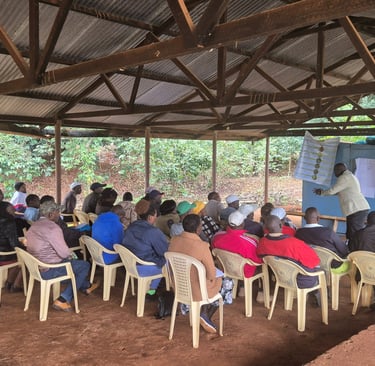
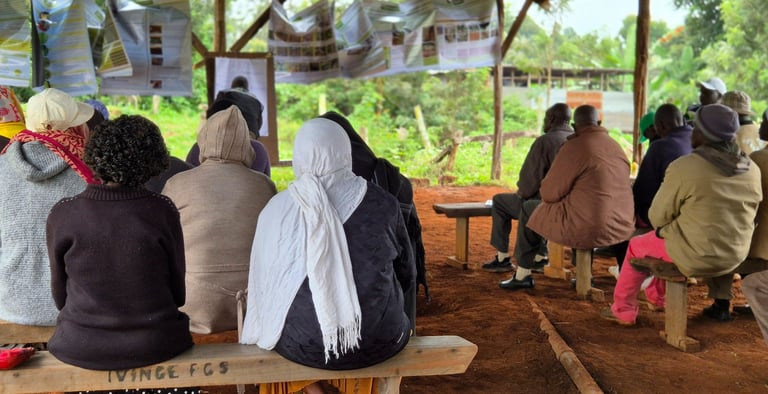

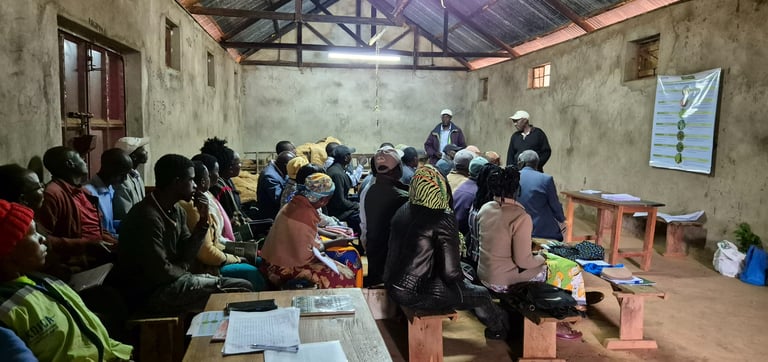

This training highlights the effectiveness of the TOT model, where farmers who are trained can pass on their expertise to others. The KFCS TOTs have demonstrated that the knowledge and skills they’ve gained are now benefiting farmers across the region.
KFCS is proud of its farmers' achievements, as they’ve shown that well-trained individuals can serve as mentors and leaders in the agricultural community. This creates a ripple effect, empowering more farmers to become self-reliant, informed, and better equipped to manage their farms and cooperatives.
In addition, the collaboration between the various cooperative societies strengthened connections and promoted a community-oriented approach. Farmers shared their experiences, discussed challenges, and worked together to find innovative solutions that could be applied to their farming practices.
Looking Ahead
The impact of this initiative will continue to grow as the trained farmers return to their cooperatives with new knowledge and techniques. As more farmers adopt GAPs in coffee, we expect to see improved productivity and higher-quality coffee harvests in the future.
KFCS remains committed to leading and participating in more knowledge-sharing programs, with the goal of building stronger, more informed, and empowered farming communities. The training organized by Kenya Good Neighbors has set a positive example for future efforts aimed at uplifting the agricultural sector through collaboration. By working together and sharing resources, cooperative societies can foster significant growth and improvement in farming practices. As this initiative evolves, it promises to have an even greater impact on Kenya’s agricultural landscape.
Significance and Impact of the Training
"Growing Together, Brewing a Better Future for Embu Coffee."
